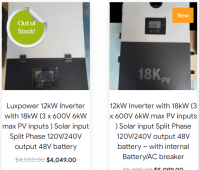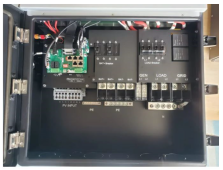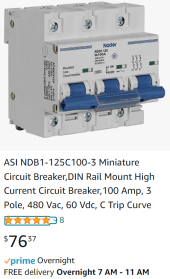I was wrong, it is not power outages that I need to monitor with a hybrid system. I don't need to go into energy saving mode necessarily when we lose the grid. If my solar production exceeds my consumption, using the air conditioners, well, clothes dryer, water heater, dishwasher, sauna, etc. is not an issue. During a power outage, I can't send the solar energy to the grid, so use it or lose it.
What I need to monitor during a power outage are my batteries. I need to make sure that they are fully charge, so I can maximize their use when there is no free solar energy from the solar panels. When I am on battery power, I need to reduce consumption so that the batteries last as long as possible. I also need to know when the batteries are discharging and charging. Batteries discharging mean power outage conserve energy and batteries charging mean power outage is over resume normal usage.
I don't want to watch batteries SOC monitor on my life. I need some type of notification system that alerts without being annoying and possibly automatically shutdown some devices. I do have Alexa that work with smart devices. If the AC was on in the bedroom, Alexa could turn it off and announce at the same time that there is a power outage. If someone tried to turn on an air conditioner, when on battery power, I could have her to notify that we are on battery power and that she will turn off the air conditioner after 15 minutes.
Any suggestions on how to monitor batteries charging/discharging that can send a status signal to a smart device???






